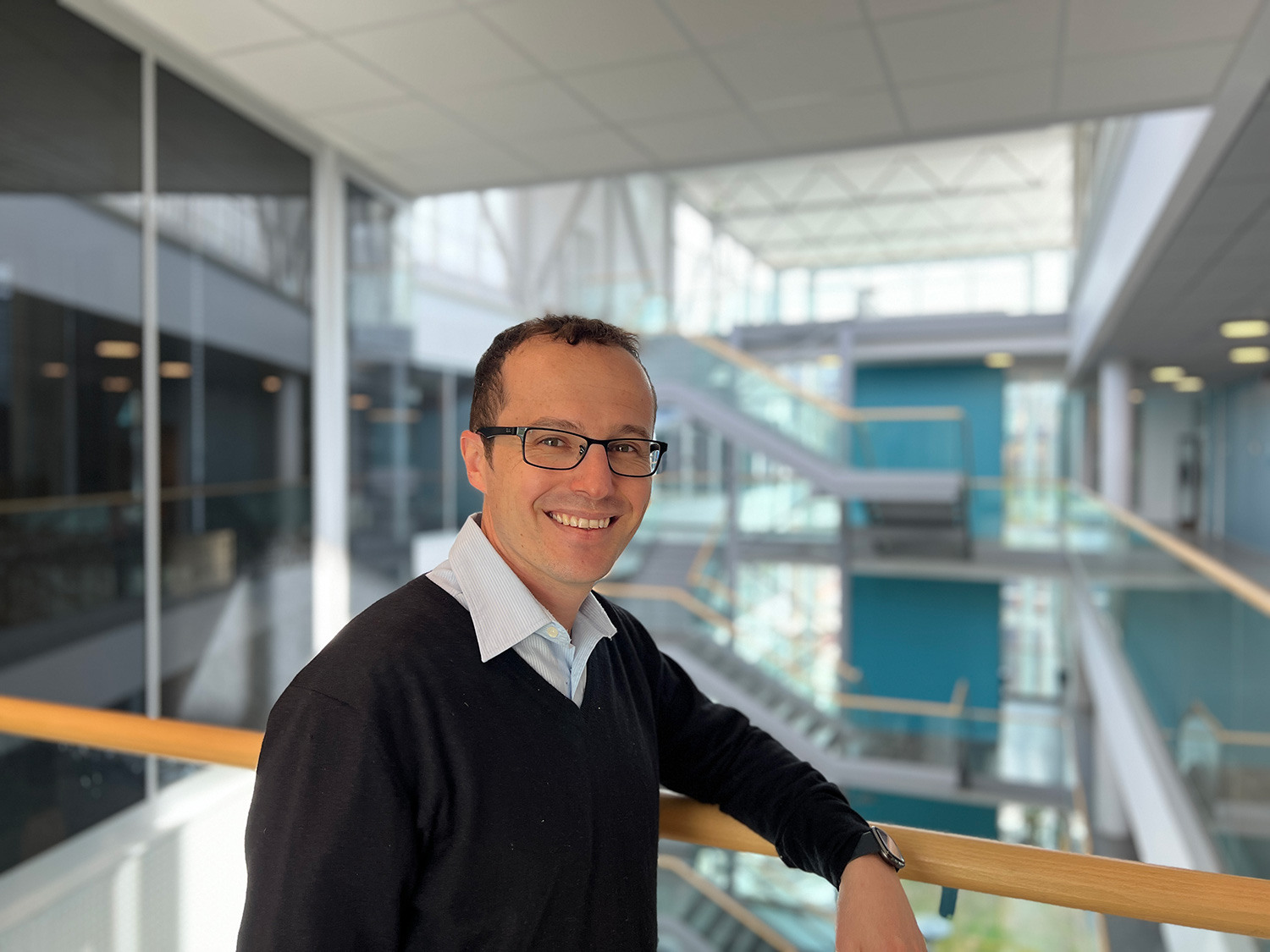Hvordan bruke kunstig intelligens for å løse verdens akutte helseproblemer?
Vil du vite mer om banebrytende forskning for å løse viktige helseproblemer i verden? Da bør du få med deg gjesteforedraget til Dr. Giorgio Quer.

Giorgio Quer er assisterende professor og direktør for kunstig intelligens ved Scripps Research Translational Institute i California. Den anerkjente professoren er denne uka gjesteforsker ved Nasjonalt senter for e-helseforskning, og bidrar her med viktig innsikt og kunnskap til all den spennende forskningen som foregår på senteret.
Georgio og SRTI gjør flere banebrytende studier for å løse viktige globale helseproblemer. Blant annet ved bruk av kunstig intelligens og bærbare sensorer for å gjøre kliniske studier mer brukervennlige og samtidig kunne samle individuelle data. Disse store datamengdene analyseres og algoritmer utvikles for å kunne forutsi pasientresultater.
Forskningen til Georgio fokuserer i hovedsak på kunstig intelligens og sannsynlighetsmodellering av ulike typer datasignaler for å hente ut viktig informasjon og forutsi fremtidige hendelser basert på tidligere data.
Gjesteforedrag
I morgen 15. juni vil han holde et gjesteforedrag ved UiT Norges arktiske universitet om kunstig intelligens og bærbare sensorer for å endre klinisk praksis.
- Dato: torsdag 15. juni 2023, kl. 13:15
- Sted: Aud 1.023 i Teknologibygget UiT
- Tittel: Digital Clinical Trials: AI and wearable sensors to change clinical practice
- Foreleser: Dr. Giorgio Quer, direktør for kunstig intelligens ved Scripps Research Translational Institute

Short bio
Giorgio Quer is director of Artificial Intelligence at the Scripps Research Translational Institute, where he leads the Data Science and Analytics team within the All of Us Research Program’s Participant Center (NIH). The Participant Center spearheads the enrollment of new participants and their engagement in the program.
His research focuses on artificial intelligence and probabilistic modeling applied to heterogeneous data signals, in order to extract key information and make predictions on future occurrences based on past data. He is involved in several digital medicine initiatives within the Scripps Research Digital Trials Center. For the DETECT study, he is developing algorithms to predict COVID-19 and other viral infections from wearable sensor data. He is responsible for collaborations with several industry partners, studying changes in heart rate and sleep data monitored by commercial wearable devices. He is also interested in the detection and modeling of atrial fibrillation from single-lead ECG signals.
He received his PhD degree in Information Engineering from the University of Padova, Italy, and he continued his studies as a Postdoctoral researcher with the Qualcomm Institute at the University of California San Diego. He is a Senior Member of the IEEE and a Distinguished Lecturer for the IEEE Communications society.
Abstract
The Scripps Research Digital Trials Center leads groundbreaking studies that address the world’s most pressing health concerns. We leverage wearable sensors to re-engineer the clinical trial experience around the participant, passively and continuously collecting individual data. We process this large amount of data and propose new algorithms for prediction of patient outcomes.
In the field of infectious diseases, we proposed DETECT, an app-based, nationwide clinical study to determine if individualized tracking of changes in wearable signals can provide early diagnosis and self-monitoring for COVID-19. We recruited 40,000 individuals and proposed algorithms for real-time detection of COVID-19, and for monitoring long-COVID and vaccine reactogenicity using wearable sensors.
On cardiovascular health, we propose a post-hoc explainability framework for deep learning models, focusing on atrial fibrillation detection and prediction for individuals wearing a sensor patch. We also showed how to reconstruct the 12-lead electrocardiogram via fewer leads using deep neural networks, using data from 1.6 million patients.